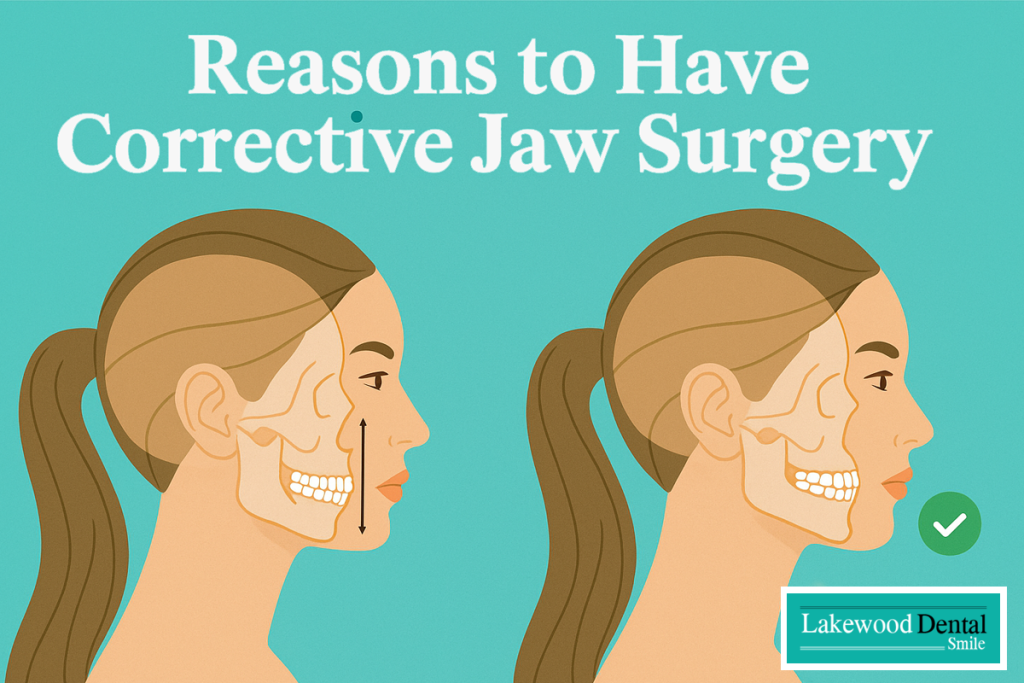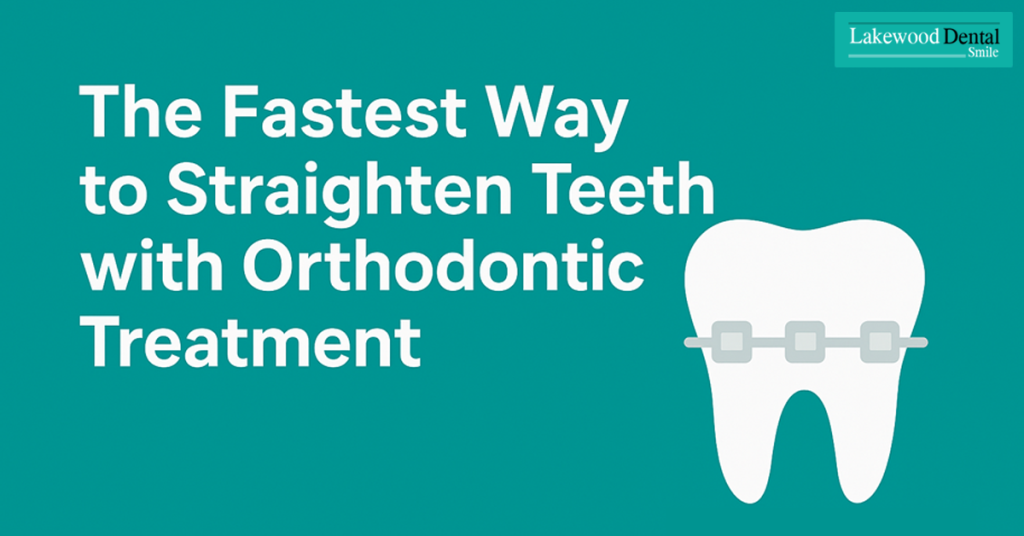Corrective jaw surgery, also known as orthognathic surgery, is not only about enhancing appearance — it’s primarily about restoring function, health, and comfort. This surgical procedure corrects skeletal and dental irregularities such as misaligned jaws and teeth, which can cause a wide range of issues if left untreated.

Jaw misalignment doesn’t just affect chewing or appearance. Over time, it may lead to chronic headaches, facial pain, difficulty speaking, and even sleep disturbances. Many people do not realize how serious these symptoms can become until daily life is affected. Corrective jaw surgery addresses these concerns, offering both functional and aesthetic benefits.
Below are some of the most important reasons patients consider this procedure.
- Clearer and More Confident Speech
When the jaw is misaligned, the tongue cannot move as freely as it should, making speech unclear or difficult. This often affects pronunciation and can cause frustration in everyday communication. By aligning the jaw properly, corrective surgery restores normal speech patterns and helps patients regain confidence in social and professional settings.
- Restoring Natural Breathing Patterns
Jaw irregularities frequently force individuals to breathe through the mouth instead of the nose. Over time, this can cause problems such as snoring, dry mouth, and sleep apnea. Corrective jaw surgery re-establishes proper alignment, allowing for natural nasal breathing and reducing the risks associated with chronic mouth breathing.
- Improved Sleep Quality
Misaligned jaws create uneven pressure in the face, which can make sleeping positions uncomfortable. Patients often experience insomnia, frequent awakenings, or restless sleep due to ongoing discomfort. Corrective surgery eliminates the source of the problem, helping patients achieve deeper, more restorative rest and reducing long-term fatigue and irritability.
- Relief from Chronic Headaches and Facial Pain
Persistent headaches and facial tension are common signs of jaw misalignment. The imbalance forces jaw and neck muscles to overwork, leading to migraines, ear pain, and stiffness. By correcting the structural issue, corrective jaw surgery relieves muscle strain and provides lasting relief from recurring pain.
- A More Balanced and Youthful Appearance
Jaw misalignment can make the face look uneven, sunken, or prematurely aged. This not only impacts confidence but can also contribute to self-esteem issues. Surgery restores balance to the facial structure, resulting in a more youthful, harmonious, and confident appearance.
- Easier Chewing and Better Digestion
When the jaws don’t meet correctly, chewing food becomes difficult and inefficient. This can cause digestive issues and limit dietary options. Corrective jaw surgery ensures the teeth and jaws work together properly, making chewing more comfortable and improving overall nutrition.
Long-Term Oral and Overall Health Benefits
Corrective jaw surgery is a long-term solution that improves both function and aesthetics. Unlike temporary fixes, the results are permanent when combined with proper orthodontic and dental care. Patients often report better oral health, reduced discomfort, improved confidence, and a better quality of life after recovery.
Why Choose Corrective Jaw Surgery?
Despite common misconceptions, orthognathic surgery is not as painful or overwhelming as many assume. With modern techniques and professional care, recovery is manageable and results are lasting. The procedure is typically performed by an oral and maxillofacial surgeon, often in collaboration with an orthodontist, to ensure optimal results.
By addressing both functional and aesthetic concerns, corrective jaw surgery provides a life-changing solution for patients struggling with misalignment issues.
Lakewood Dental Smile: Expert Care You Can Trust
At Lakewood Dental Smile in Dearborn, Michigan, we are committed to helping patients overcome jaw-related challenges and achieve healthier, more confident lives. Our team offers advanced surgical and dental treatments, tailored care, and ongoing support throughout your journey.
👉 If you are experiencing chronic pain, difficulty chewing, or sleep problems caused by jaw misalignment, schedule a consultation today. Corrective jaw surgery may be the solution that transforms both your health and your smile.




